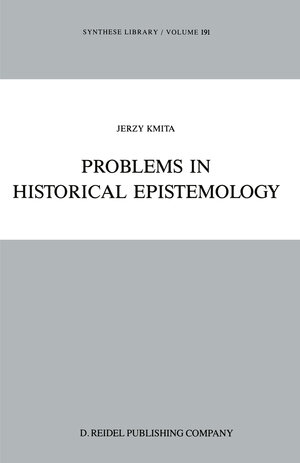
×
![Buchcover ISBN 9789401071369]()
Inhaltsverzeichnis
- 1 / Epistemological Cognition as Historical Cognition.
- 1.1. Factographical Versus Theoretical Historicism.
- 1.2. Framework Regularities.
- 1.3. Assumptions of Historical Epistemology.
- 1.4. The Relation Born by General Statements of Historical Epistemology on Methodological Norms and Directives.
- Notes.
- 2 / The Relation of Correspondence.
- 2.1. Literal Reference.
- 2.2. The Characteristics of Essentially Corrective (Strict) Correspondence.
- 2.3. Remarks of Traditional Understandings of Correspondence.
- 2.4. An Example of Essentially Corrective Correspondence, A Debate with the Views of P. K. Feyerabend.
- 3 / The Opposition of Theory and Experience.
- 3.1. ‘Dogma of Empiricism’.
- 3.2. Performed Action as the Essentially Corrected Correspondence Rendering of Undertaken Action.
- 3.3 Two Kinds of Opposition of Theory and Experience: The Relative and the Absolute.
- 4 / The Duhem-Quine Thesis.
- 4.1. The Comprehensive Instrumentalism of W. V. Quine.
- 4.2. The Comprehensive Instrumentalism of W. V Quine from the Viewpoint of Historical Epistemology.
- 5 / Althusser’s Instrumentalism.
- 5.1. A Marxist Variant of Theoretical Historicism Methodology.
- 5.2. Althusser’s Conception of Historical Materialism.
- 5.3. ‘Anti-Empiricism’ as a Consequence of the ‘Methodologically’ Instrumentalist Interpretation of Historical Materialism.




